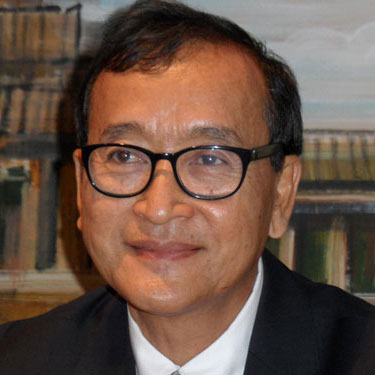Today we commemorate the 18th anniversary of the assassination in Phnom Penh of popular trade union leader Chea Vichea on Jan. 22, 2004. Those responsible for his killing still enjoy total impunity, as do those responsible for many other political murders committed in Cambodia.
There is a ray of hope from Paris that the end of this impunity may be in sight.
More than 20 years ago my wife Tioulong Saumura and myself filed a case in Paris as French citizens to try to find those responsible for the grenade attack carried out in Phnom Penh on March 30, 1997. We were the targets of this attack, which killed at least 16 people and left more than 100 seriously wounded, including Chea Vichea who was participating with us in a peaceful demonstration. The Tribunal Judiciaire of Paris on Dec. 30, 2021 issued an indictment order before the Cour d’Assises concerning Hing Bun Heang and Huy Piseth, the two highest-ranking bodyguards of Prime Minister Hun Sen, for “complicity in attempted assassination.”
The order states that “the arrest warrant issued on March 19, 2020 for Huy Piseth and Hing Bun Heang remains in force by virtue of article 186-3 of the penal procedure code.”
The Tribunal states in the order that “the different investigations carried out by the FBI, the United Nations, the foreign relations commission of the American Senate, as well as the Human Rights Watch organisation unanimously conclude that Hun Sen’s bodyguards were responsible for the grenade attack which targeted Sam Rainsy, with a significant role in the attack being played by Hun Sen’s personal security brigade. Various elements of evidence show the premeditation, organisation and execution of the attack.”
On the final responsibility for the attack, the report of the U.S. Senate commission on foreign relations reached the following conclusions in October 1999:
“(1) Members of Hun Sen’s Bodyguard Force participated in the planning and execution of the March 30, 1997 attack.
(2) Hun Sen, being one of the only two people with authority over the Bodyguard Force, must have known of and approved the attack.
(3) By June 1997, the U.S. Government was in possession of overwhelming evidence of conclusions #1 and # 2, but did nothing about it.”
Tioulong Saumura and myself, on our own behalf and on that of all the other victims, wish to express our appreciation of the work of the French Tribunal in establishing the facts of the attack of March 30, 1997, and indicting those identified as responsible. The decision of the French Tribunal Judiciaire brings a ray of hope to all victims of political violence in Cambodia. These victims may be sure that there exists, and always will exist somewhere in the world, a justice system worthy of the name, which will put an end to the impunity which has endured in Cambodia since the bloody era of the Khmer Rouge.
[Image credit: Reuters]

Sam Rainsy, Cambodia’s finance minister from 1993 to 1994, is the co-founder and acting leader of the opposition Cambodia National Rescue Party (CNRP).

